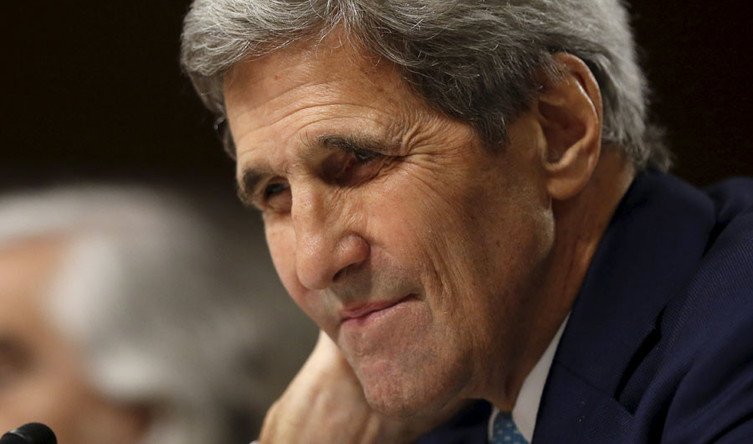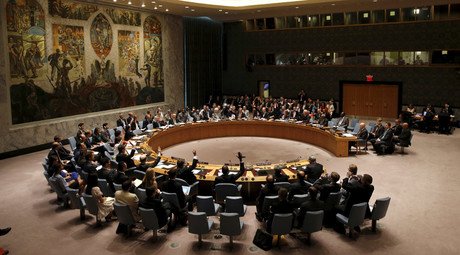No ‘unicorn arrangement’: Kerry fires back at Senate critics of Iran deal

Republican lawmakers criticizing the administration’s nuclear deal with Iran are looking for “some sort of unicorn arrangement involving Iran’s complete capitulation,” Secretary of State John Kerry told the Senate Foreign Relations Committee.
Kerry blasted the notion that a better deal could have been achieved as a “fantasy, plain and simple.”
The marathon hearing was mostly divided along party lines, with Democrats backing the administration’s position and Republicans blasting the agreement as bad for the US and Israel. The American Israel Public Affairs Committee (AIPAC) has aired TV commercials urging lawmakers to reject the deal.
Joining Kerry were Treasury Secretary Jack Lew, who explained the role of financial sanctions in bringing Iran to the negotiating table, and Energy Secretary Ernest Moniz, who took part in the talks with Iranian officials.
The agreement, announced last week in Vienna, “is the good deal we have sought,” and would provide a “stronger, more comprehensive, and more lasting means of limiting Iran’s nuclear program than any realistic alternative,” Kerry told lawmakers.
Under the deal’s terms, Kerry said, Iran would get rid of 98 percent of its enriched uranium stockpile, two-thirds of its enrichment centrifuges, and the existing core of its heavy-water reactor. Iran would also be barred from producing or acquiring enriched uranium and weapons-grade plutonium for at least 15 years.
Many of the measures from the agreement will stay in place for the lifetime of Iran’s nuclear program, Kerry said, enabling the US to “verifiably ensure it remains exclusively peaceful.”
Republican lawmakers, however, were openly scornful of the administration’s claims. Bob Corker, a Tennessee Republican and chairman of the committee, rejected the argument that the only alternative to the deal was going to war with Iran.
“You’ve been fleeced,” said Corker.
READ MORE: Iran nuclear deal gets UN endorsement, paving way for sanctions relief
Other Republican senators expressed frustration with the fact that the Obama administration has already taken the deal to the UN Security Council, which approved it on Monday. Congress has 60 days to weigh in on the agreement, under the provisions of a compromise bill adopted in May after acrimonious debate. Lawmakers say the UN resolution has put them before a done deal.
At one point, Kerry defended Iran’s Supreme Leader Ali Khamenei, noting that he had issued a fatwa against nuclear weapons. It was Khamenei who insisted a promise that Iran would “never go after a nuclear weapon” be included in the text of the agreement.
Rejecting the deal in Congress would amount to a rejection of not just good faith of the Iranian leadership, but the entire nuclear non-proliferation treaty (NPT), which 198 states currently observe.
“So what’s your plan?” asked the visibly exasperated Secretary of State. “Erase their memory?”
“President Obama has made it crystal clear we will never accept a nuclear-armed Iran,” Kerry said. “But the fact is that Iran now has extensive experience with nuclear fuel cycle technology. We can’t bomb that knowledge away.”
Treasury Secretary Jack Lew also tried to disabuse lawmakers from the notion that continuing the sanctions that were “crushing” Iran’s economy was an alternative to a deal. The only reason the sanctions were effective, Lew said, was the widespread support from other countries. If the deal fell through, that support would disappear, he said.
Another point of criticism was that the Clinton administration signed a nuclear deal with North Korea, which resulted in Pyongyang obtaining a nuclear weapon. Kerry noted that the North Korean deal fell through because the Bush administration reacted to Pyongyang’s violations by shutting down diplomacy, and that the Iran agreement was designed to prevent that from happening again.














